On a hot, sunny day in early July, more than two dozen MFA students and graduates answered our open call to gather in New York City's Central Park for the photo shoot that resulted in the cover of our September/October 2011 issue. After the shoot, we asked each of them what factors went into their decision about where to apply. Here's what twenty-two of them said. (Photos taken by Pieter van Hattem.)
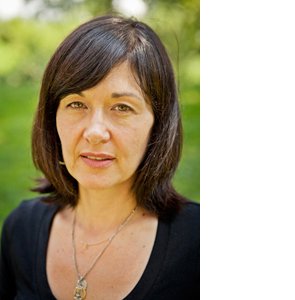
Paramount to me was to be in an academic environment to gain exposure to the classics of nonfiction, my genre. Secondly, I wanted to be among individuals who shared my passion for a good metaphor while also discussing the merits of memoirists such as M.F.K. Fisher and Mary Karr. Thirdly, I wanted to attend seminars conducted by agents and published writers. Lastly, it had to be a low-residency program due to family obligations. Fairfield University’s MFA program met all my requirements and expectations. The university had the bonus of beautiful Enders Island, off the coast of Mystic, Connecticut, where the twice-yearly residencies took place, and there I gained the confidence and support to pursue my dream of being a writer.
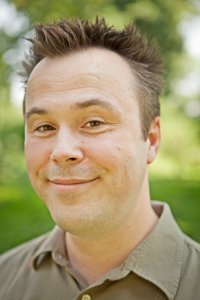
I wrestled for a few years about whether to go for an MFA. With twenty years as a magazine editor and a few books under my belt, I wasn’t particularly worried about getting in, but I did have concerns about seeing the time and money invested pay off down the line. Ultimately, I knew I was procrastinating and that for my writing to evolve further, I’d need outside help—and that meant grad school. With that in mind, I zeroed in on Hofstra in part because its new creative writing MFA starts inaugural classes this September, so it doesn’t have a reputation, good or bad. Some might say going with an unproven program is a gamble, but the department clearly has a vested interest in building a respected degree program, and I can only stand to benefit from the faculty’s determination. In advance of the start date, I’ve been taking English courses that will be applicable to the degree’s requirements; while admittedly they’re only a small indicator, I’m pleased with my choice so far.
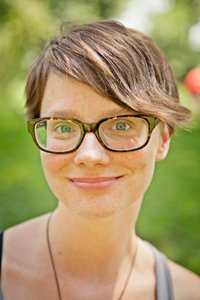
This was my second time around applying to MFA programs. The first time I made funding a priority, and sent a slew of applications across the country, with little result. I revamped my writing sample and this time decided to focus on staying in New York. By considering low-residency programs, I could afford to maintain the life I love here in the city. I worried a low-residency program would lack the community of an on-campus program, but I’ve found it to be not true at all. There’s an outstanding camaraderie among the writers in my program, faculty and students alike. It’s the perfect fit for me.
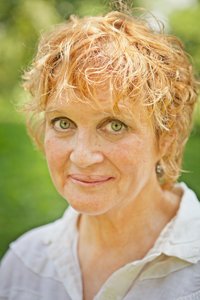
I was looking for a program in New York that respected creative nonfiction; when I explored the various websites, I found The New School's presentation to be inviting and professional, but not so overwhelming as to make the program feel non-inclusive for a commuter student. At their late summer mixer, I got to speak with some former and current students about the specifics of the program. Selecting classes based on the instructor was a challenge at first, but relying on word-of-mouth—and sometimes just personal observation—usually helped me make the right choice. As proof of the program's impact on my career, I have modeled the classes I now teach, as well as the curriculum I use, on the classes I took at The New School. Also, my book-in-progress, "Through a Brick Wall," a memoir of adolescence and disability, started as a three page essay in a workshop class.

I had always dreamed of living and writing in New York City, so when I started the application process, location was my only criteria. Very quickly, though, I realized that economics and community were extremely important too. I was genuinely shocked by the tuition fees at some of the well-known programs. I also knew that relocating to New York City from Melbourne, Australia (where I grew up and went to university), was going to be emotionally challenging, so a welcoming, supportive, intimate writing community was essential. Brooklyn College was the first program to accept me. Joshua Henkin, the fiction director, positively wooed me—as he did the rest of the students in the program. And all the students I corresponded with while I was making my decision seemed wonderful: supportive, enthusiastic, diverse, community-oriented, and most importantly, passionate about writing. I could tell they were Good People. It was an easy decision in the end. I’m very happy here.
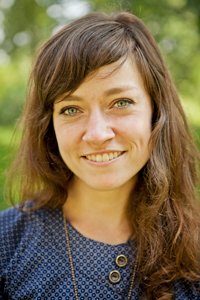
I had applied only to programs that offered funding, but once spring rolled around and I spoke with students at Brooklyn College and elsewhere, I discovered I had some other strong priorities: camaraderie rather than competition, one-on-one support from faculty, and instruction on craft and technique. I was working overseas and I was actually reluctant to return to New York, but a flurry of e-mails with current MFA candidates ultimately made it an easy choice. The Brooklyn College students I spoke with were unanimously—and compellingly—enthusiastic about their experience.
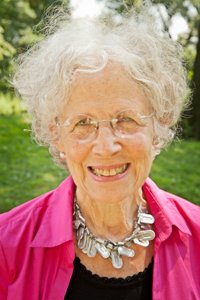
Serendipity brought me to LIU’s MFA creative writing program. My husband worked at LIU and, after a thirty-year teaching career, I joined an inspiring poetry course; the professor invited me to apply to the program. I held my breath. Could I handle this? This program is terrific. And I’m fussy. Have had courses all over (State University of New York, New York University, Bank Street, and Project Zero at Harvard). And I’ve had brilliant teachers at LIU. One important aspect of this program is the mixture of students in class from different concentrations, such as rhetoric, literature, fiction, professional writing, playwriting, and poetry. The students are talented writers, prime movers (some start magazines), and they’re warm—to a gray head, yet.
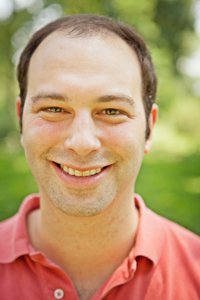
Research a large number of programs, but don’t limit yourself to a few schools. Cast a wide net and hope for the best, but be okay if you’re rejected from your top ten choices. Rejection comes with the territory. When I originally applied, I thought I’d go full-time. Instead I decided to forgo loans, pay my way, and pursue my degree at night, part-time. If part-time is your best option, while the degree may take longer, go for it. Balancing with work/life is pretty stressful, but the output is just as rewarding
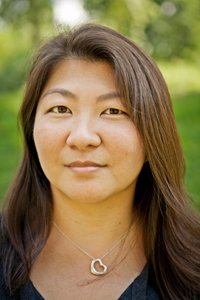
While researching MFA Creative Writing programs, I had two main requirements: it had to be located in New York City and it had to offer classes in writing for children and young adults. The New School matched both of these criteria, but had other benefits as well. Faculty was made up of notable authors, small class size which meant more attention to students and there was access to a network of amazing writers. In my first year, I got to meet renowned authors from my genre. There are only twelve students, including me, in the Writing for Children concentration, and we’ve developed great relationships with each other. We even created a group blog that focuses on children and young adult literature: www.TeenWritersBloc.com. The New School has definitely exceeded my expectations in an MFA program.
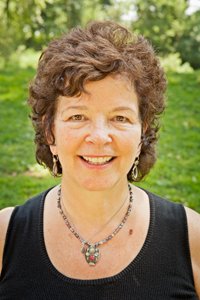
I sought a program where writing would not be locked down in a narrow routine, overworking a single muscle in poetry, fiction, essay, etc. I am delighted with my selection of Stony Brook Southampton. I'm on the Manhattan track, which allows me access to unparalleled talent, and so close to home! My work has grown through exposure to top tier novelists, playwrights, essayists, and more. Their genuine interest in my work is an unexpected tonic and contributes to a dynamic, supportive classroom experience. My advice to the applicant: Ensure there will be a culture of creativity to propel you and that you will be permitted—indeed encouraged—to grow in unexpected ways.
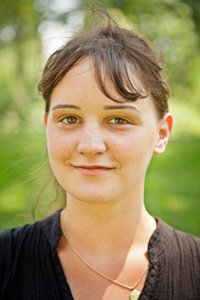
I visited one of Brooklyn College's workshops when deciding among programs and remember being awed by the quality of the student writing and the level of attention everyone paid one another's stories. The place seemed filled with talented and passionate writers. I quickly realized it was filled with great people, too. My experience as a student has far surpassed my expectations of this or any program. My writing's sharpened on a technical level, but also on a personal one, as each student is given the freedom to explore his or her own style. And while we're continually challenged to produce as much as we can and to produce the best work we can, it's always with a sense of community in mind. We genuinely want to see one another do well. I couldn't be happier.
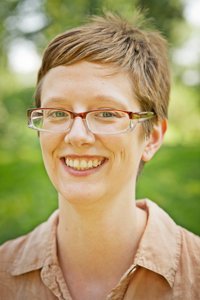
I applied to several MFA progams in the Southwest, a region I’d always been fascinated with. I chose New Mexico State University in Las Cruces sight unseen on the basis of funding (great, especially combined with the low cost of living) and population—I wanted to replicate the small town environment of my college town, Bloomington, Indiana, as much as possible. When I visited Las Cruces the summer before my first semester, I was generously hosted by several graduates of the MFA who I would never see in a classroom, but who offered their homes and hobbies to me as if we were family. NMSU is a rare three-year program that gives students time not just to write a thesis, but a book.
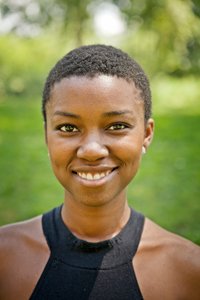
In deciding upon an MFA program, it was important that I be able to take electives outside of writing, so that exploring my other interests would be possible. After entering my program, however, I realized that there were other factors important to me that I could not have estimated beforehand such as a large program, large faculty, and, particular to Sarah Lawrence, the conference system, in which students meet with their professors every other week to discuss work. Without this latter feature, I wouldn't have the opportunity to get to know my instructors. Access to professors is very difficult in certain MFA programs, since faculty tend to travel, so I'm glad to be able to meet with mine regularly.
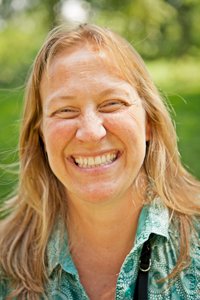
I am a saxophone player and composer living in New York City with my husband and daughter. I had taken a few writer's workshops when I heard about low-residency programs. These seemed like the perfect fit for me, as I wanted something more intense than workshops could ever offer, and something flexible enough to fit around my life. What attracted me to Bennington, besides its amazing faculty, was its offer of a "third semester switch," during which time students may change genres. I had been deemed a better nonfiction writer, but didn't want to be condemned to nonfiction for two years. Now, I don’t want to switch.
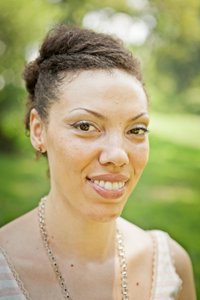
My predominate consideration in MFA program choice was curriculum. My goal is to graduate with a publishable, quality novel; therefore, programs steeped in academic scholarship were not considered. At the end of the day writing creatively involves time and space. Although some say geographical location should never be considered when applying to graduate school, I know opportunity often manifests itself in specific hubs; therefore, the majority of my applications were sent to the northeast region of the country. Faculty was considered on a lesser scale; I am aware the best writers are not necessarily the best teachers. However, because I am a minority from the Midwest, I wanted a program that is diverse or at least offers staff appreciative of different writing aesthetics. More so than the credentials of faculty, I factored in the publishing rate of students. How will the program help me become published? Lastly, I applied to programs meeting the above requirements that offered an application fee waiver for McNair Scholars.
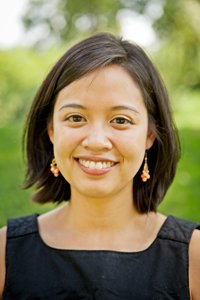
When I was applying to MFA programs, I was very interested in location. Classes and school-related activities only take up a limited amount of time; I wanted to be somewhere I felt comfortable living and writing. When it came time to choose between programs, I began to consider everything else—commitment of the faculty, program size, affordability/financial support, and sense of community. Brooklyn College ranked high on all of these marks. The teachers are genuinely excited to support new writers and will gladly read and discuss work outside of workshop.
When I was applying to MFA programs, I was very interested in location. Classes and school-related activities only take up a limited amount of time; I wanted to be somewhere I felt comfortable living and writing. When it came time to choose between programs, I began to consider everything else—commitment of the faculty, program size, affordability/financial support, and sense of community. Brooklyn College ranked high on all of these marks. The teachers are genuinely excited to support new writers and will gladly read and discuss work outside of workshop. Finally, and perhaps more importantly, I have also gained a close-knit group of fellow writers (and friends) that I trust will remain strong even after the program has ended.
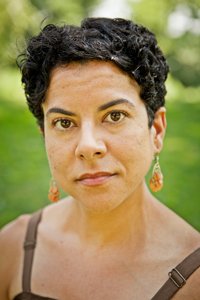
I applied to three area MFA programs in early 2010. I was nearly forty, newly “downsized,” and not convinced pursuing a creative writing degree was practical. I researched each program extensively. Reviews and statistics are valuable, but the personal connections I made during my search helped me select the MFA program that is right for me. Campus visits, MFA program events, and informal conversations with students and faculty yielded the most valuable information. My main criteria were location, accessible faculty, and diverse student body (especially age!). Rutgers-Newark is exceeding my expectations. The MFA program welcomed me like a member of the community when I was just a prospective candidate. I am supported by the faculty beyond the classroom, and the bounds of the academic day and year. I have discussed craft and practical writer’s-life issues with acclaimed visiting authors. I am inspired by my classmates’ dedication to their work and the careful attention they give mine.
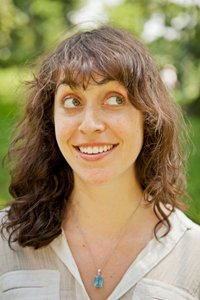
I only applied to one MFA program: Brooklyn College. It met all of my needs—local, affordable, competitive, highly regarded, flexible enough that I could continue working. The tuition is really the great equalizer. Brooklyn makes pursuing an advanced degree in poetry possible without incurring massive debt. I had great professors, especially Mac Wellman, Lou Asekoff, Lisa Jarnot, and Julie Agoos, and, ultimately, I learned that writing isn't about recognition in workshop, it's about sitting down and getting friendly with words, every single day.
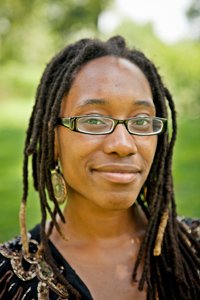
I chose an MFA in fiction because as a librarian, I have access to all "information" and find that truth wavers along that thin fiction line. Surrounding my life are ancestor-spirits who've charged me the task of storytelling on their behalf, first-person. My politics walk in hand with public education, thus CUNY [City University of New York] is my home. In my writing, I want to queer a statement by making it a question, and it is Queens College’s campus, filled with integrity, remoteness, and personal excitement, that allows me to explore the possibilities of sex, race, and spirit in my words.
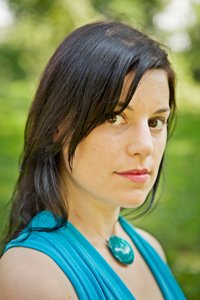
When I first applied to MFA programs, I vowed I would only attend a university that offered me a full ride, stipend, and teaching experience. Several offered me all three, but I chose NYU, which offered only one semester of teaching and very little financial assistance. I chose it for the name, the location, the outreach programs, and the faculty; I also didn't, at that age, really know what it meant to have student-loan debt. After you've finished, most faculty will tell you they're too busy to give recommendation letters or blurbs, even if you've studied closely with them. Looking back, I wish that I had taught abroad for several years instead and taken advantage of the part-time schedule, and the isolation of a new setting, to write. An MFA is not the only, or the best, route to honing one's craft or creating a body of work.
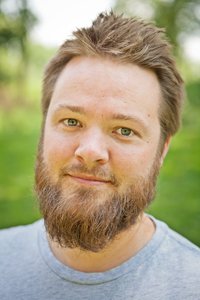
The main program criteria for me was class size: I really wanted workshops and craft seminars with a dozen students (or less). I hoped for a tight-knit community of writers, more supportive than competitive. Beyond the program itself, I only applied to schools in big cities outside the South. I figured literal distance from my roots would allow for some creative perspective. Not to mention a good reason to move to New York City or San Francisco. Looking back, reading the work of a program's instructors is key, and beyond that, calling the director to find out who will actually be teaching your first year. Program websites sometimes misrepresent their faculty.
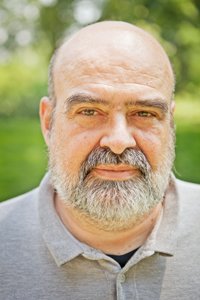
If you are interested in literary translation there are, in the United States at this time, only three MFA programs in literary translation. Only two of these are linked to creative writing programs. The Queens College MFA program in literary translation is one of those two. Even if I had not been a New Yorker, I would have given Queens College very serious consideration. I did my homework: I looked up the faculty (first-rate writers and translators in their own right, as well as outstanding academics); most importantly, I got in touch with current students in the program—which I definitely recommend as the best way to evaluate. That is why I encourage any prospective MFA candidate to contact me for feedback on the program.







